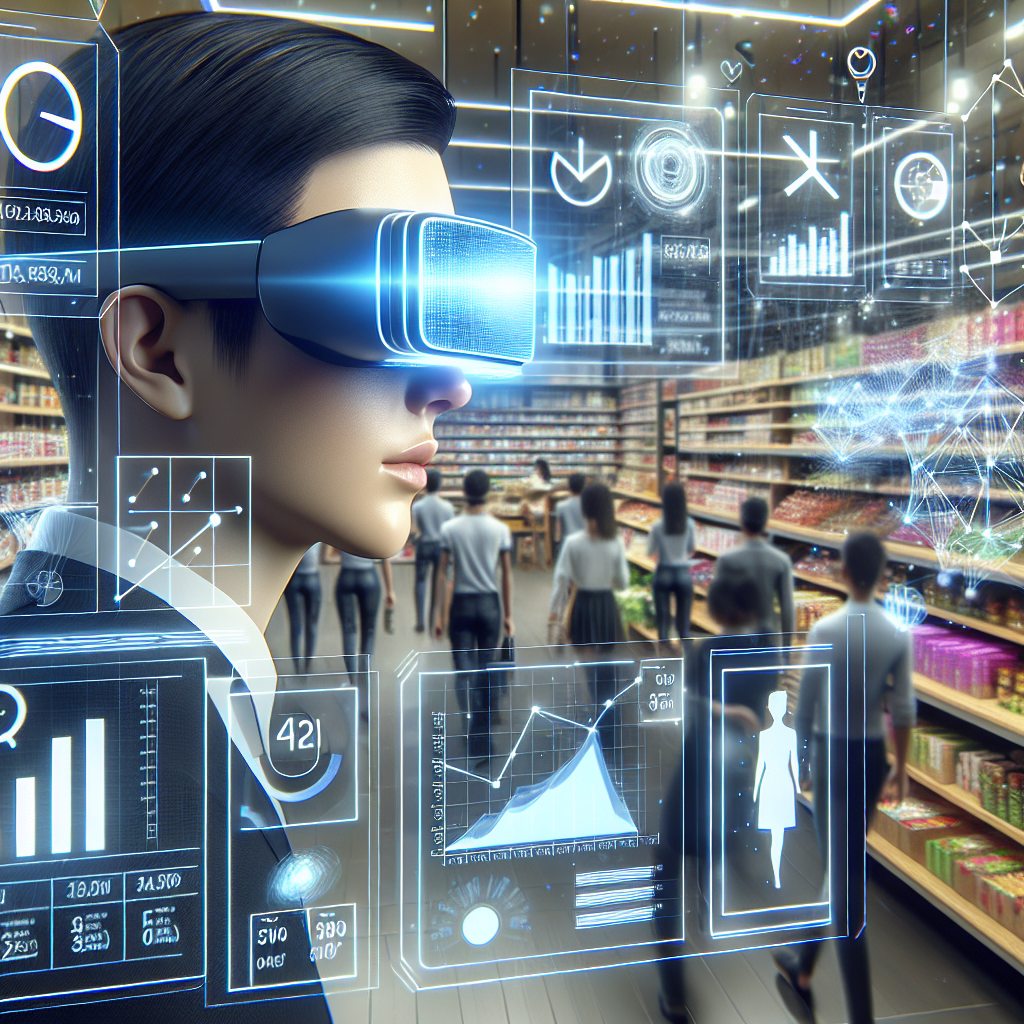In a world where technology is constantly evolving, the retail industry is no exception. With the rise of e-commerce and online shopping, traditional brick and mortar stores are facing new challenges in attracting customers and driving sales. However, one technology that is poised to revolutionize the retail industry is augmented reality (AR).
Augmented reality is a technology that superimposes a computer-generated image onto a user’s view of the real world, providing an enhanced experience by blending digital information with the physical environment. In the retail sector, AR has the potential to transform the way consumers shop by providing immersive and interactive experiences that enhance their purchasing decisions and overall shopping experience.
One of the key benefits of AR in retail is the ability to bridge the gap between online and offline shopping. With AR-enabled devices such as smartphones and smart glasses, consumers can visualize products in their physical space before making a purchase. This not only allows them to see how a product will look in their home or on their body, but also helps to reduce the uncertainty associated with online shopping and increase confidence in their purchasing decisions.
Another advantage of AR in retail is the ability to provide personalized recommendations and targeted promotions based on a consumer’s preferences and shopping behavior. By analyzing data collected through AR interactions, retailers can better understand their customers’ needs and preferences, and tailor their offerings to meet them. This not only improves the customer experience, but also increases the likelihood of driving sales and building brand loyalty.
Furthermore, AR can also be used to enhance in-store experiences by providing interactive product displays, virtual try-on experiences, and personalized shopping assistants. By incorporating AR technology into their stores, retailers can create a more engaging and immersive shopping environment that captivates customers and sets their brand apart from the competition.
As the retail industry continues to evolve, AR is poised to play a crucial role in redefining the future of retail analytics. By leveraging the power of AR technology, retailers can gain valuable insights into consumer behavior, preferences, and shopping patterns, and use this information to drive sales, enhance the customer experience, and stay ahead of the competition.
FAQs:
Q: How does augmented reality work in retail?
A: Augmented reality works by superimposing computer-generated images onto a user’s view of the physical world through a device such as a smartphone or smart glasses. In retail, AR can be used to provide interactive and immersive experiences that enhance the shopping process and drive sales.
Q: What are some examples of how augmented reality can be used in retail?
A: Some examples of how augmented reality can be used in retail include virtual try-on experiences for clothing and accessories, interactive product displays, personalized recommendations based on a consumer’s preferences, and targeted promotions tailored to a consumer’s shopping behavior.
Q: How can retailers benefit from using augmented reality?
A: Retailers can benefit from using augmented reality by providing a more engaging and immersive shopping experience for customers, increasing confidence in purchasing decisions through visualizing products in the physical space, and gaining valuable insights into consumer behavior and preferences to drive sales and build brand loyalty.
Q: Is augmented reality technology expensive to implement in retail?
A: While the initial investment in augmented reality technology may be significant, the long-term benefits for retailers in terms of increased sales, enhanced customer experience, and competitive advantage far outweigh the costs. Additionally, with advancements in technology and increased adoption of AR devices, the cost of implementing AR in retail is expected to decrease over time.
In conclusion, augmented reality holds the potential to revolutionize the retail industry by providing immersive and interactive experiences that enhance the shopping process and drive sales. By leveraging the power of AR technology, retailers can gain valuable insights into consumer behavior, preferences, and shopping patterns, and use this information to stay ahead of the competition and redefine the future of retail analytics. As AR continues to evolve and become more accessible to consumers, the opportunities for retailers to leverage this technology to enhance the customer experience and drive sales are endless.
